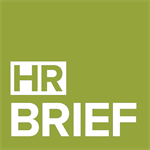
EEOC Issues New Guidance on COVID-19 and ADA Disability
The Equal Employment Opportunity Commission (EEOC) recently issued 14 new answers to frequently asked questions (FAQs) about what employers may or may not do to comply with federal fair employment laws during the COVID-19 pandemic. The new FAQs specifically address the definition of “disability” and how to determine whether an individual with COVID-19 meets it under the Americans with Disabilities Act (ADA).
ADA and COVID-19 Background
Under the ADA, employers with 15 or more employees may face liability if they take certain adverse employment actions against individuals who have been diagnosed with or are believed to have COVID-19. The ADA also requires these employers to provide reasonable accommodations for individuals with disabilities, including any related to COVID-19. Smaller employers may be subject to similar rules under applicable state or local law.
Three-Part Definition
The EEOC’s new FAQs clarify that COVID-19 may qualify an individual for ADA protection based on “actual” disability, a “record of” disability or being “regarded as” having a disability. Employers must perform an individualized assessment to determine whether a specific employee’s case of COVID-19 meets any of these definitions.
Disability Types
COVID-19 is an actual disability if it is a physical or mental impairment that “substantially limits one or more major life activities.” The FAQs provide examples of situations in which an individual with COVID-19 would (and would not) meet this definition. The FAQs also explain and provide examples illustrating how certain adverse employment actions may violate the ADA even if an individual only had COVID-19 in the past (“record of” disability) or is mistakenly believed to have COVID-19 (“regarded as” having a disability).
In addition to these FAQs from the EEOC, contact us today for more information on COVID-19 and the ADA.
3 Hybrid Work Model Mistakes to Avoid
It’s no shock that the COVID-19 pandemic fueled a pivot towards remote work. And as workplaces reopen, a significant number of employees want to retain their remote status. To accommodate this desire, many employers are using a hybrid work model, allowing employees to work in person some of the time and remotely for the rest. Within this model, it’s critical for employers to understand potential pitfalls and adapt as necessary. Here are three common hybrid work model mistakes to avoid.
1. Inadequate Policies
If employers don’t have clearly defined hybrid policies detailed in writing, employees and their managers may not understand expectations, which could lead to confusion, improper conduct or missed deadlines. Among other topics, a hybrid work policy might include details on who is eligible for hybrid work, scheduling expectations and technology specifics.
2. Unfamiliar Leadership
While many employees may want to work at least some of the time remotely, leadership might feel differently, preferring in-person work. This can be problematic when these same people write and enforce workplace policies. It may be insightful for management to also try out hybrid work or discuss concerns with those participating in a hybrid schedule.
3. Inconsistent Communication
Staying up to date on timely developments is a constant struggle for most workplaces. While multichannel communication can reach dispersed workers and is generally an effective tool, employees still need to know where to expect messages to come from. A workplace may standardize communications through a messaging platform or intranet to keep employees informed.
Employer Takeaway
When properly implemented, hybrid work models can provide flexibility to workers while still maintaining operational productivity. Reach out today for more hybrid work resources.

